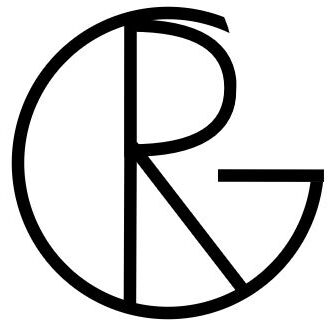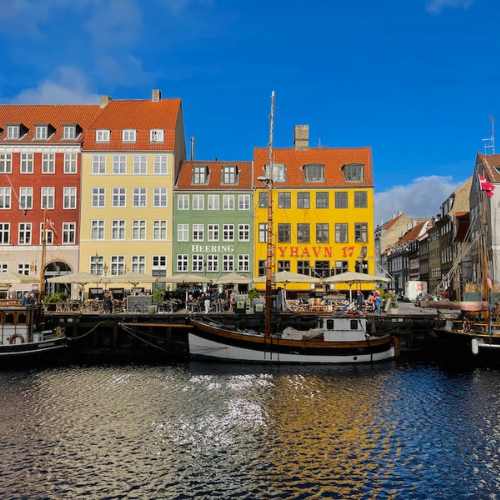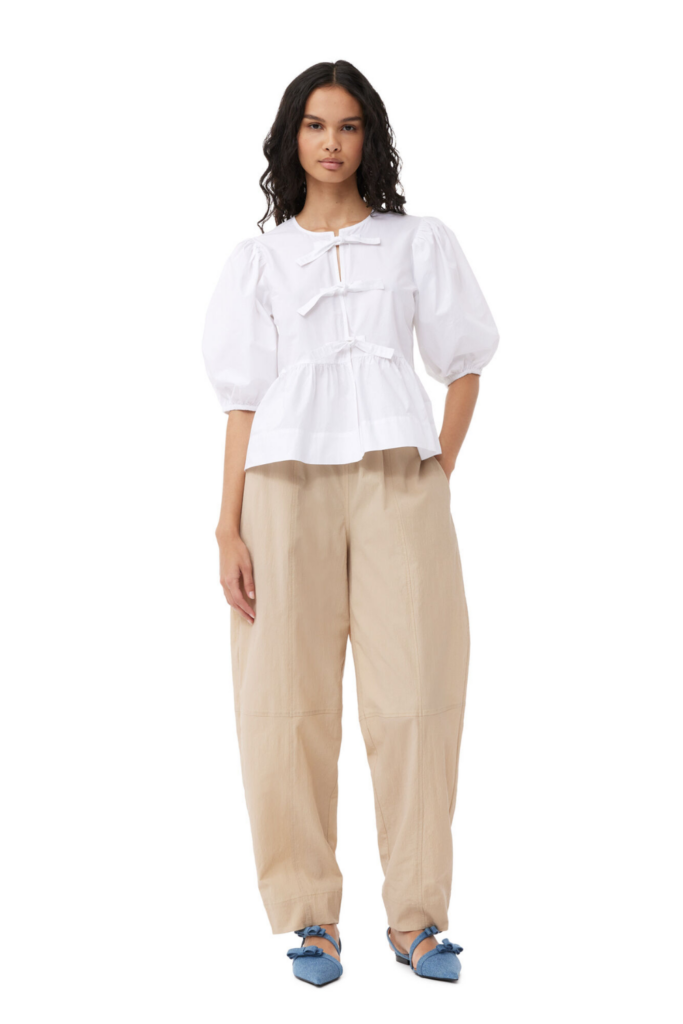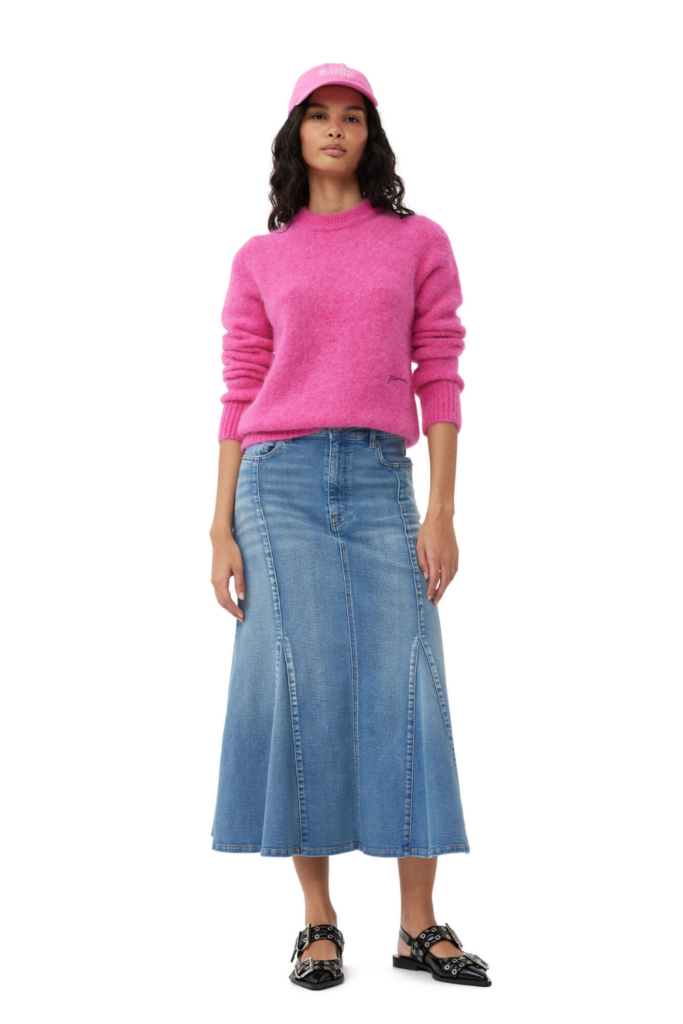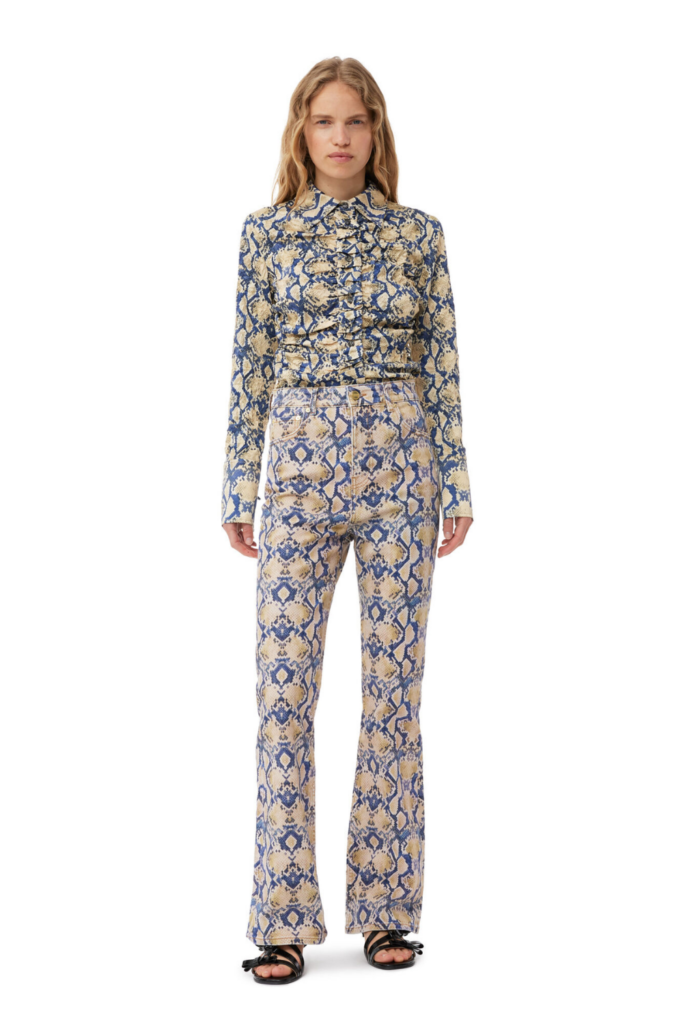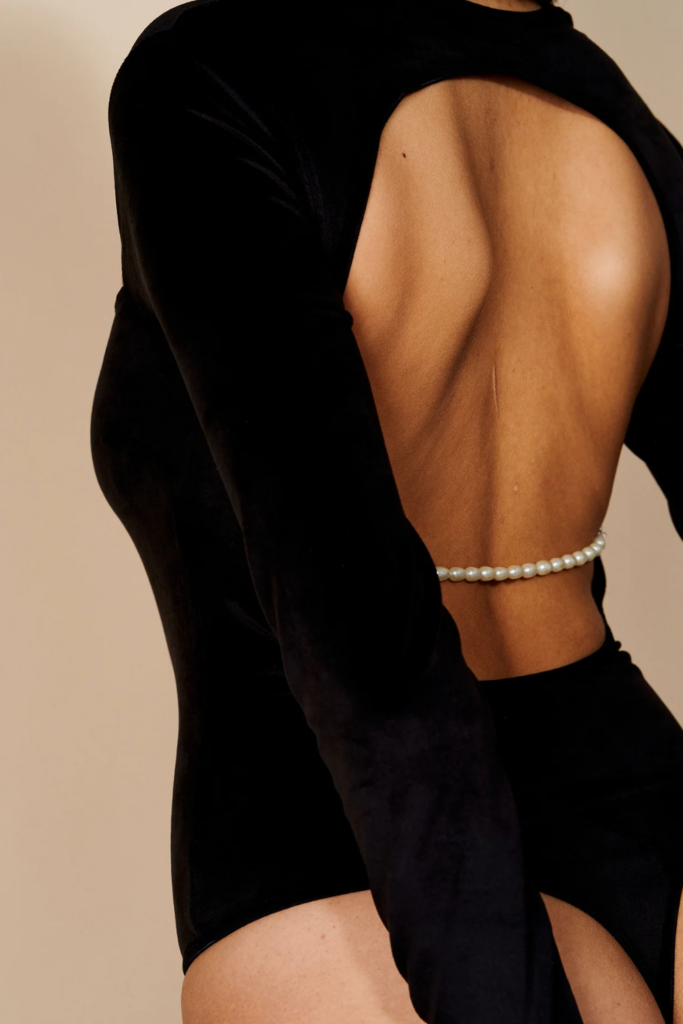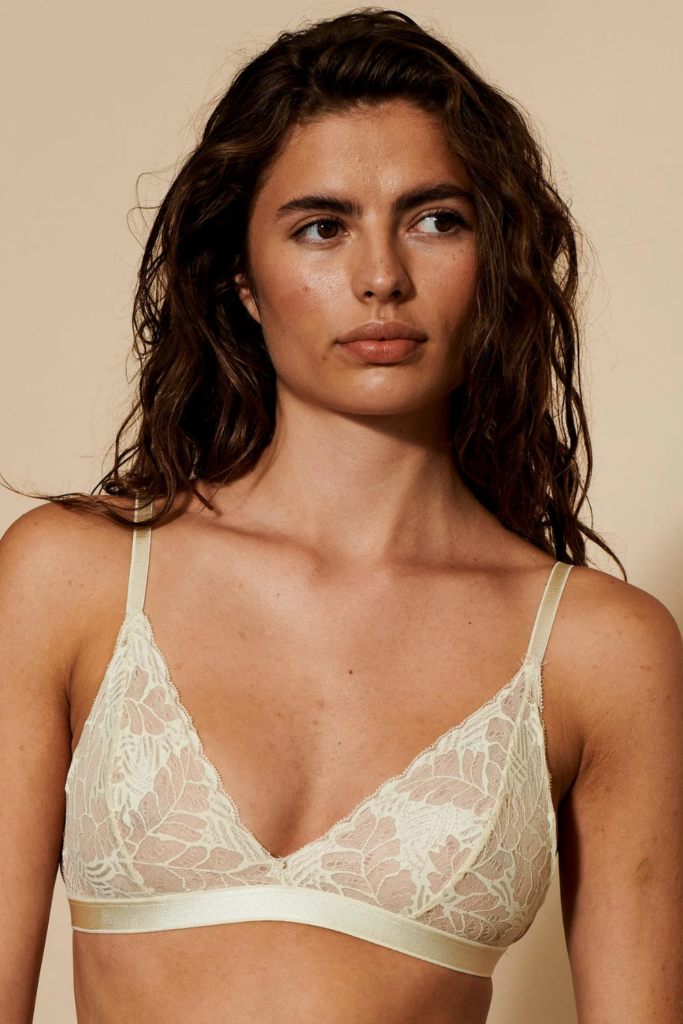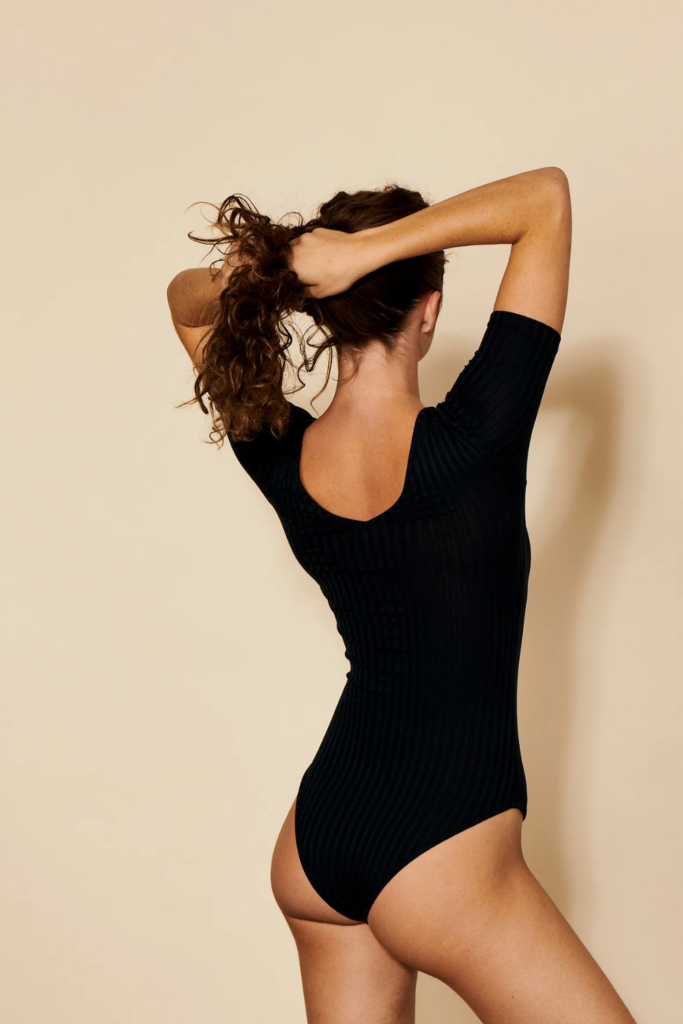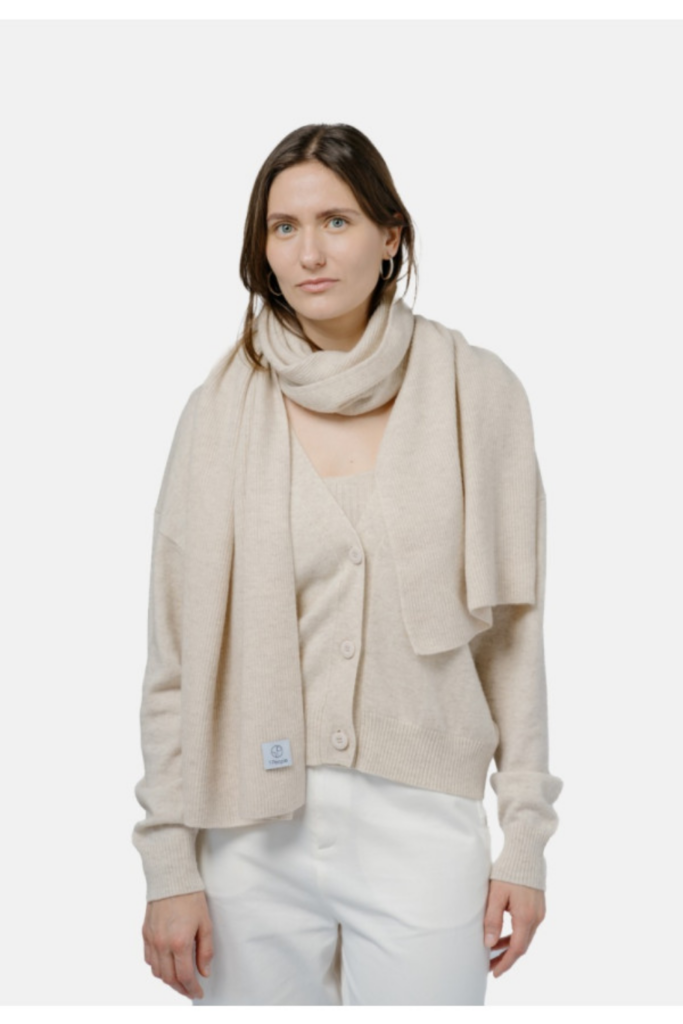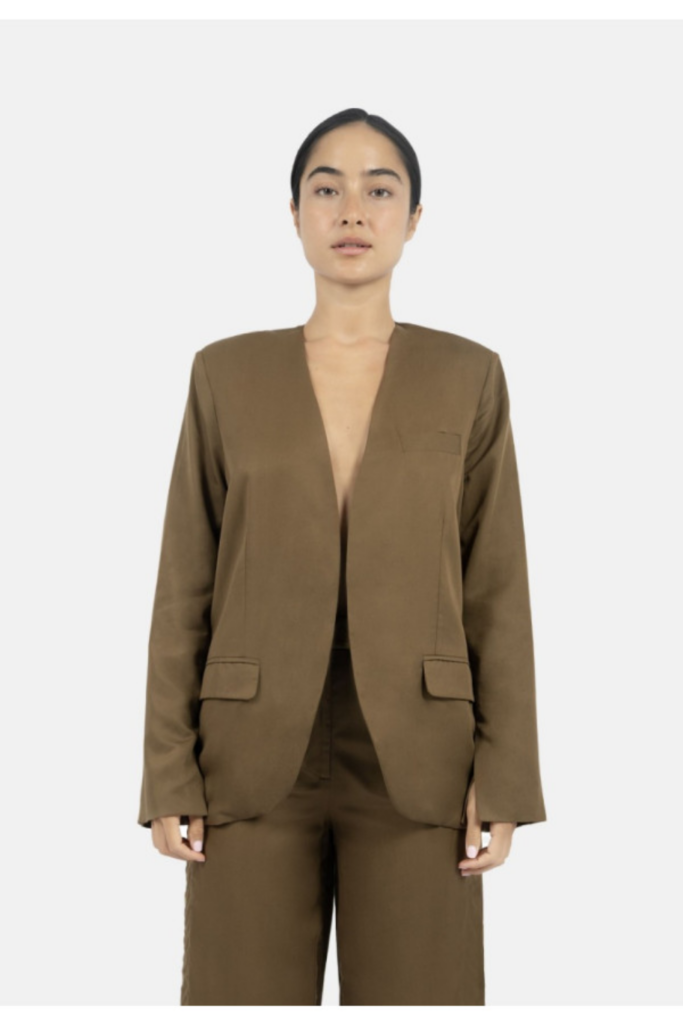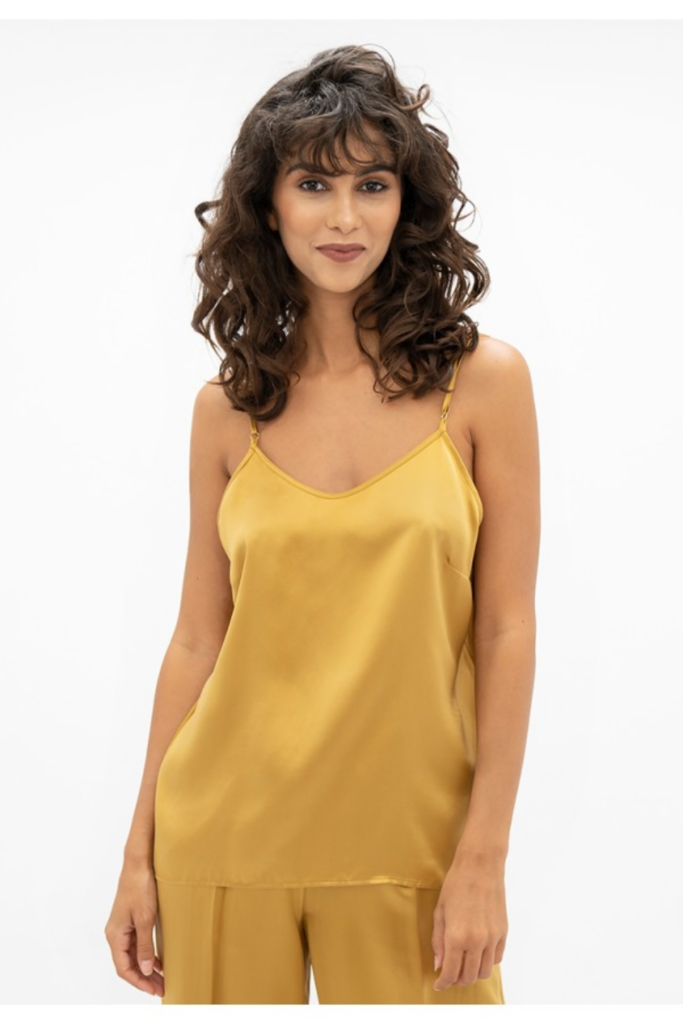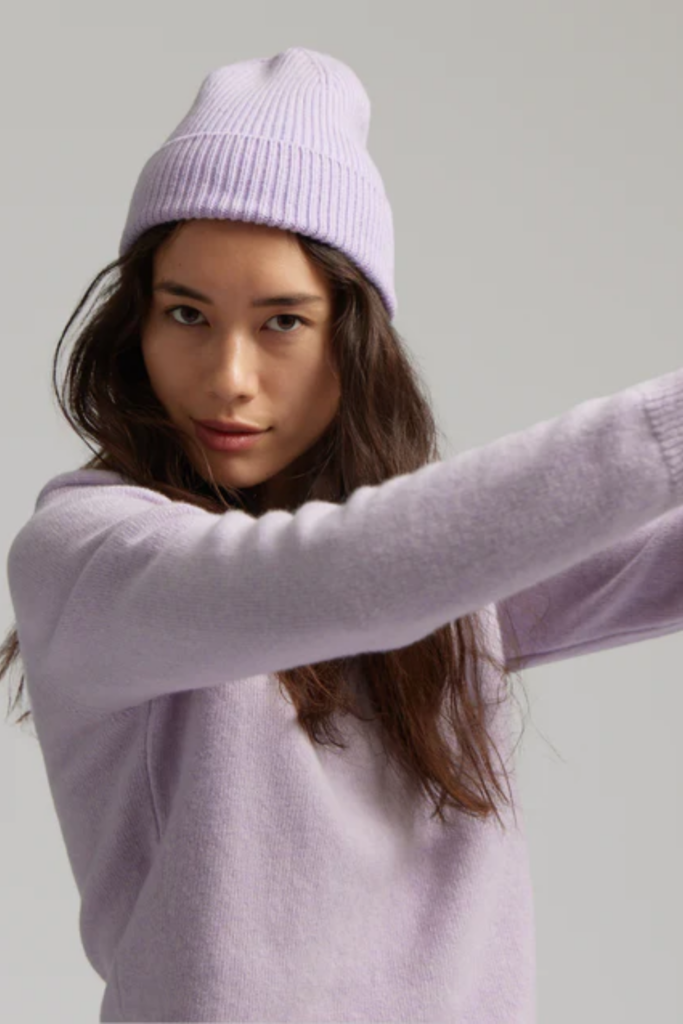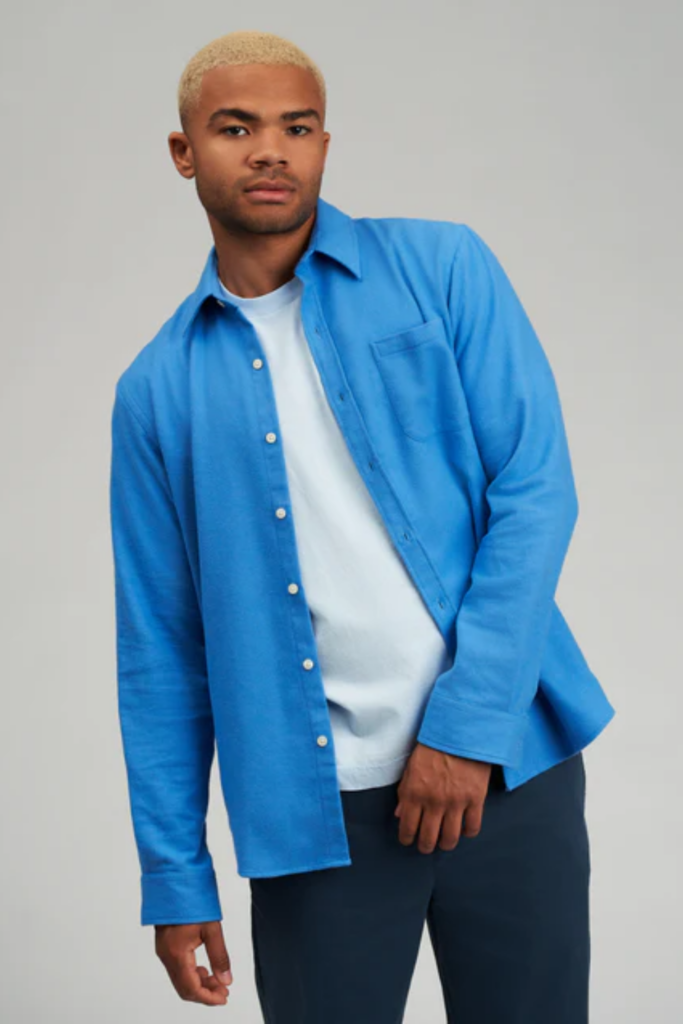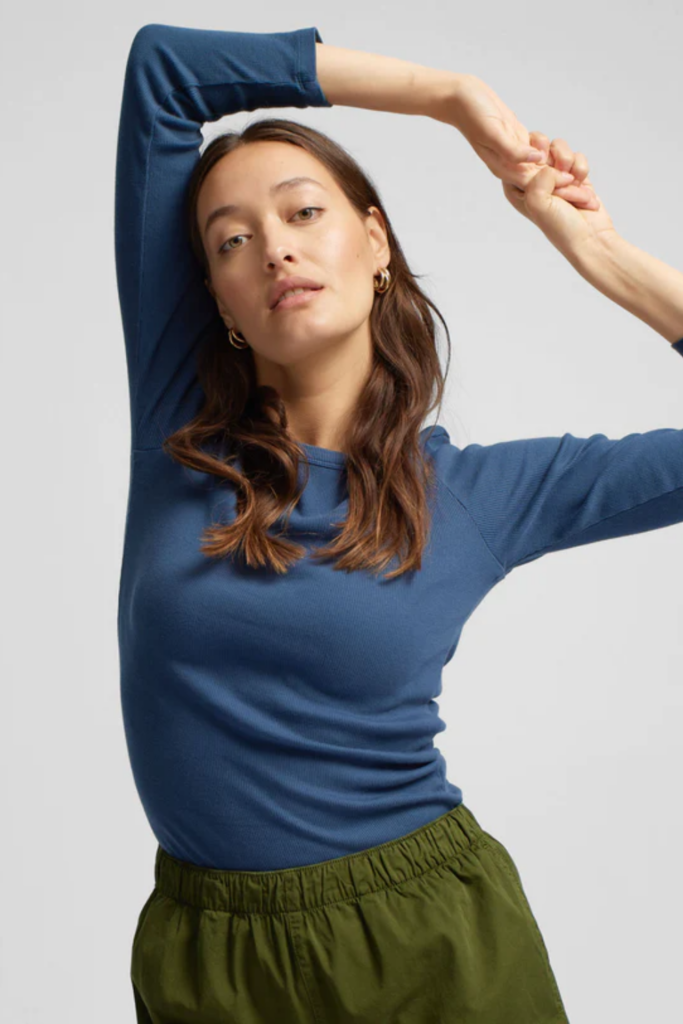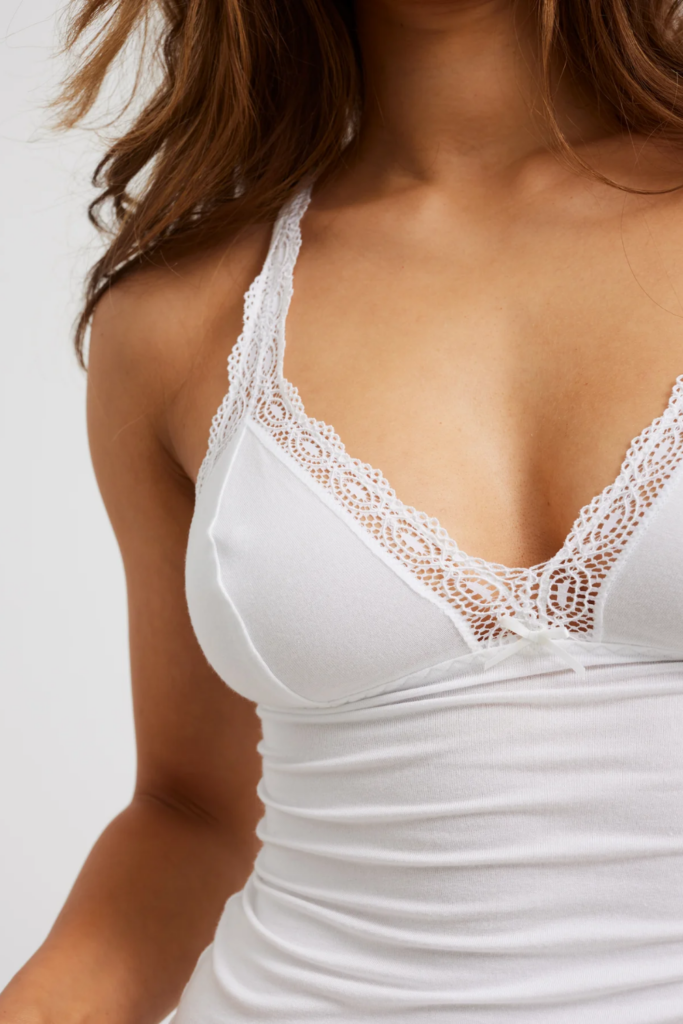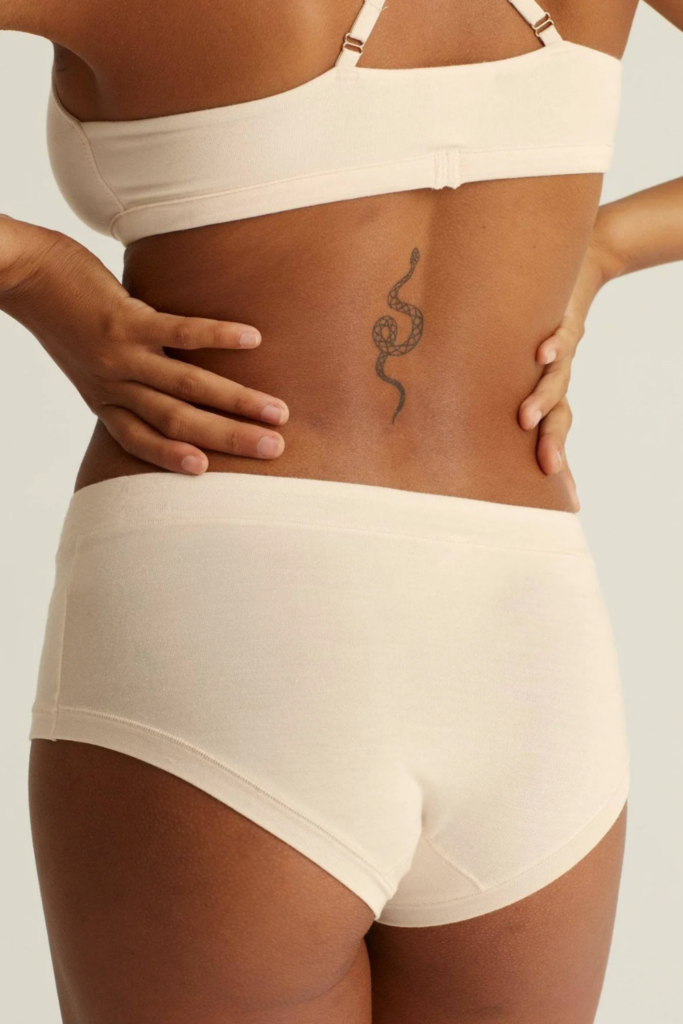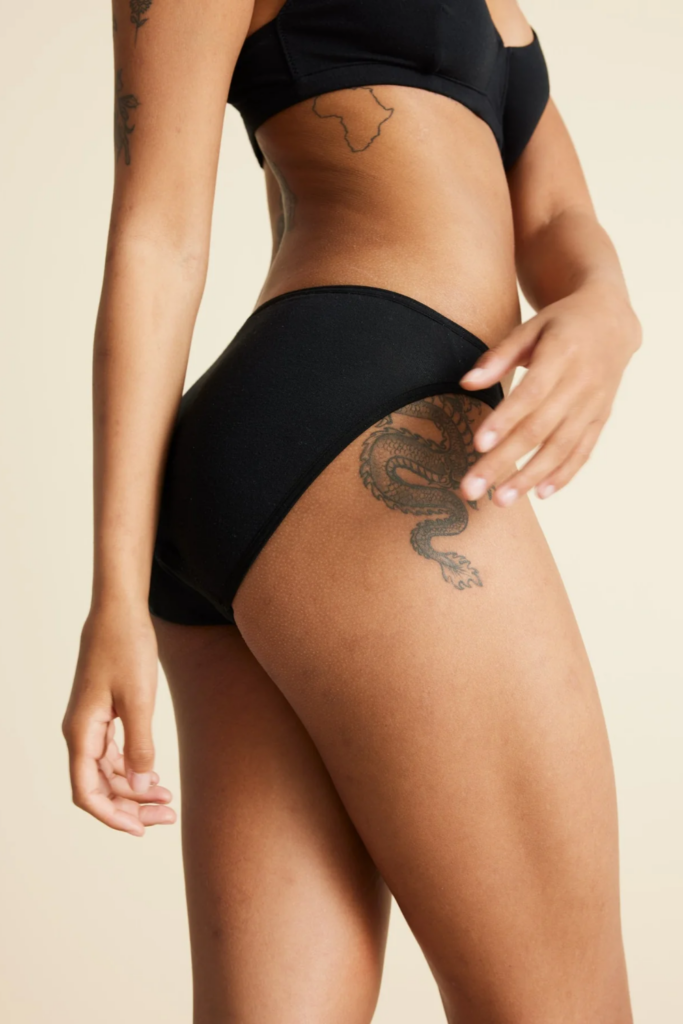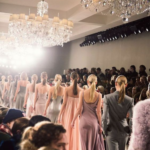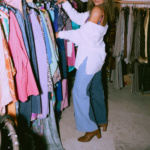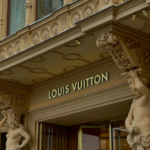Welcome to my new series, “Sustainable Fashion Around the World”. In this post, we’ll look at fashion brands from Denmark.
When it comes to sustainability, Denmark consistently stands out as a leader. The country is at the forefront of the movement towards a greener society, showcasing numerous impressive initiatives. Unsurprisingly, this commitment extends to their fashion scene. Copenhagen Fashion Week holds the title of being the most sustainable fashion week globally, with participating brands adhering to strict rules regarding their environmental and ethical practices.
Given this context, it’s no wonder that Denmark is a hub for many sustainable fashion brands. Let’s take a look at five of these brands.
Ganni
The first brand on this list is one of the most well-known brands from Denmark – Ganni. The brand was founded by Frans Truelsen in 2000 with the idea of creating the perfect cashmere sweater. Fast-forward to 2009, the brand was taken over by husband and wife duo Nicolaj and Ditte Reffstrup, who steered Ganni into a different direction, embracing contemporary ready-to-wear with vibrant colors and prints.
Ganni’s Commitment
When you land on Ganni’s responsibility page, the first thing that grabs your attention is a bold statement: “We’re not a sustainable brand.” Ganni openly admits that the fashion industry, as a whole, faces challenges in achieving sustainability due to its constant pursuit of the new and the emphasis on consumption. Instead, Ganni positions itself as a responsible brand, acknowledging its imperfections and actively striving to make better choices every day to minimize its social and environmental impact.
To show this commitment, Ganni takes a result- and fact-driven approach to creating change, which is evident in their Responsibility Report. This comprehensive report tracks their progress across various fronts, including People, Planet, Product, and Prosperity.
As part of their climate action, Ganni has set an ambitious target of reducing greenhouse gas emissions by 50% by 2027. Their strategy involves tackling various aspects, including materials and innovation, climate awareness, renewable energy, circularity, transportation, insetting, and the elimination of coal.
Recognizing that materials contribute to 56% of their carbon footprint, Ganni places a strong emphasis on using materials that can actively reduce this impact. Therefore, Ganni uses a variety of materials neatly categorized into three groups: recycled materials (think GRS recycled polyester, recycled cotton, and recycled leather), lower-impact materials (featuring Ecovero and hemp), and organic materials (including organic cotton, silk, and wool).
Ganni ensures 100% traceability in the initial stages of its supply chain and upholds ethical practices through a code of conduct, responsible purchasing, and animal welfare policies.
Ganni emphasizes diversity, with women holding 67% of leadership positions and 50% in decision-making roles. The brand is also inclusive, offering a quarter of its collections in extended sizing, covering EU32-52.
Underprotection
Established in 2010 by Sunniva Uggerby and Stephan Rosenkilde, Underprotection is a lingerie brand dedicated to ushering sustainability into the industry. The duo was later joined by Jeanette Hansen, a perfect complement to the founding team.
The brand’s name, Underprotection, carries a meaningful split: ‘Under’ symbolizes the intimate layer closest to our bodies — lingerie, while ‘protection’ signifies the brand’s commitment to protect and care for the environment and people. It encapsulates their dedication to creating lingerie that not only adorns but also upholds ethical and environmental values.
Underproctection’s Sustainability
Due to its unwavering commitment to sustainability, Underprotection proudly holds a B Corp certification, one of the most esteemed certifications in the world of sustainability.
For Underprotection, this certification is explained in a fourfold manner: prioritizing ethical treatment of workers through certified suppliers, promoting gender equality with women-owned suppliers, using eco-friendly packaging, and utilizing certified sustainable materials like TENCEL™ lyocell, organic cotton, banana fibers, and recycled polyester, nylon, and wool.
Furthermore, Underprotection sheds light on its contribution to the Sustainable Development Goals (SDGs), a set of global objectives established by the United Nations to eradicate poverty, address inequalities, and combat climate change by 2030.
Take, for instance, SDG 6—clean water and sanitation. Underprotection ensures its practices align with this goal by adhering to guidelines for chemical use. The brand exclusively uses Oeko-Tex materials, ensuring that no harmful substances enter its products and that no chemicals are released into the ecosystem.
Interested? Please visit Underprotection’s website or take a look at their Instagram (@underprotection).
1 People
Founded by Rea Tjoa Algreen, 1 People is a sustainable luxury brand that designs effortlessly timeless looks for conscious women. The brand’s mission is to change how business is done and make the world a better place for all.
1 People’s Initiatives
1 People upholds rigorous standards for its products’ environmental and social impact. The brand prioritizes certifications and regularly audits suppliers to ensure safe working conditions and sustainable practices. Selected suppliers commit to recycling, waste reduction, efficient water and energy use, and lowering their carbon footprint.
1 People focuses on sustainable materials like PYRATEX® (seaweed fiber), Piñatex®, Tencel, and Linen. The brand evaluates its product’s sustainability through a scoring system based on factors like energy intensity and recyclability.
Beyond the environment, 1 People addresses social impact by dedicating profits to three projects: Business for Planet, supporting planet-minded entrepreneurs; Youth Education, donating to improve education; and Feed the Hungry, aiming to alleviate hunger.
Aligned with Sustainable Development Goals (SDGs) like No Poverty, Decent Work, Responsible Consumption, and Peace, Justice, and Stronger Institutions, 1 People embraces a comprehensive approach to create products that positively impact both people and the planet.
Visit 1 People’s website here or take a look at their Instagram (@1peopletogether).
Colorful Standard
Founded in 2017 by Tue Deleuran, Colorful Standard is a lifestyle brand. The purpose of the brand is to hold the fashion industry to a higher standard that no longer risks the health of the people or the environment.
Colorful Standard’s Commitment
Colorful Standard lives up to its name with a vibrant product palette, yet it prioritizes eco-friendly practices. The brand uses environmentally friendly dyes certified by Oeko-Tex, ensuring no harmful chemicals. With 50 color options, Colorful Standard offers a diverse yet planet-friendly range.
Material consciousness is key—garments are crafted from 100% organic cotton, reducing pesticides and carbon emissions. For their wool products, Colorful Standard opts for 100% recycled merino wool, certified by the Global Recycled Standard.
Safe working conditions are ensured as all products are manufactured in their Portugal center, adhering to EU standards. To cut waste, Colorful Standard uses laser cutting, with scraps repurposed as furniture filling, showing a commitment to resourcefulness and environmental impact reduction.
Interested? Please visit Colorful Standard’s website or take a look at their Instagram (@colorfulstandard).
Woron
The last brand on this list is Woron, an underwear brand founded by two sisters, Arina and Anya Woron. At the heart of their creative process is the philosophy of slow fashion. Woron deliberately crafts timeless pieces meant to endure the test of time.
Woron’s Sustainability
Woron adopts a compassionate and plant-based approach, steering clear of animal materials, making it a vegan-approved brand. Their material choices include certified organic cotton, Lenzing Modal (a fiber derived from beech wood), and regenerated fibers like Econyl, crafted from ocean and landfill waste.
When it comes to coloring their products, Woron maintains a commitment to safety. The brand avoids harmful chemicals and toxic dyes, opting for certified dyes that are non-toxic and allergy-friendly.
All of Woron‘s products are crafted within Europe, with their primary family-owned factory based in Hungary. This factory holds certifications such as GOTS and Oeko-Tex, ensuring safe and healthy working conditions with strict hours. Notably, the majority of the factory workforce comprises women. Similar standards and certifications are upheld in their other factories located in Greece, Italy, and Turkey.
Visit Woron’s website here or take a look at their Instagram (@woronstore).
Sources
All pictures link to their source, and all credits go to the rightful owners.
You can find the header picture here.
